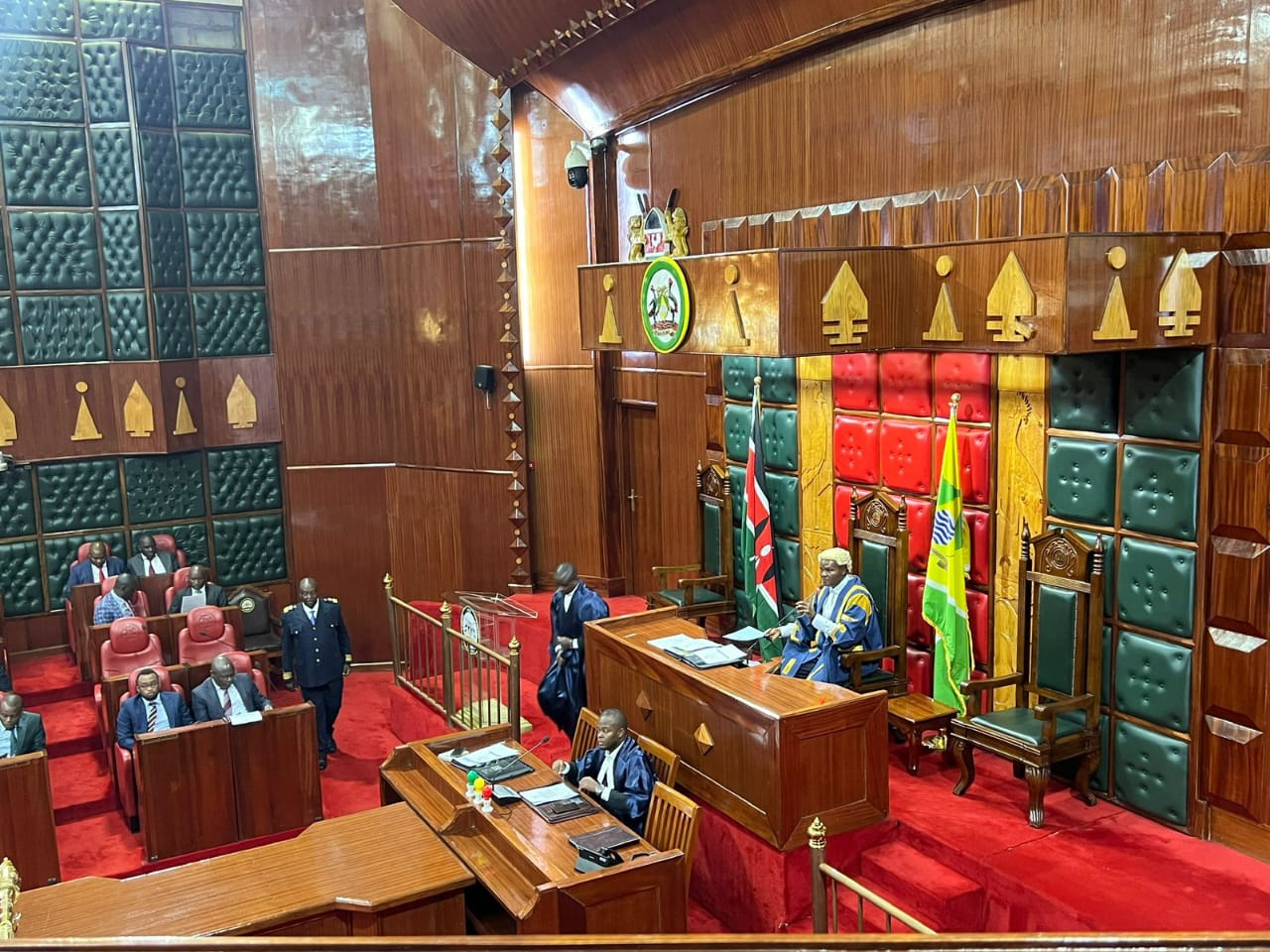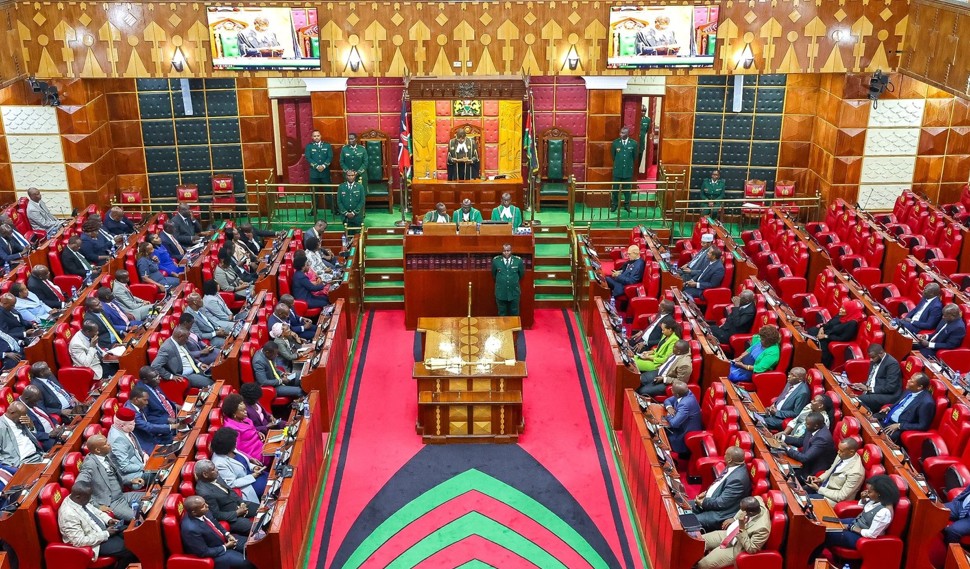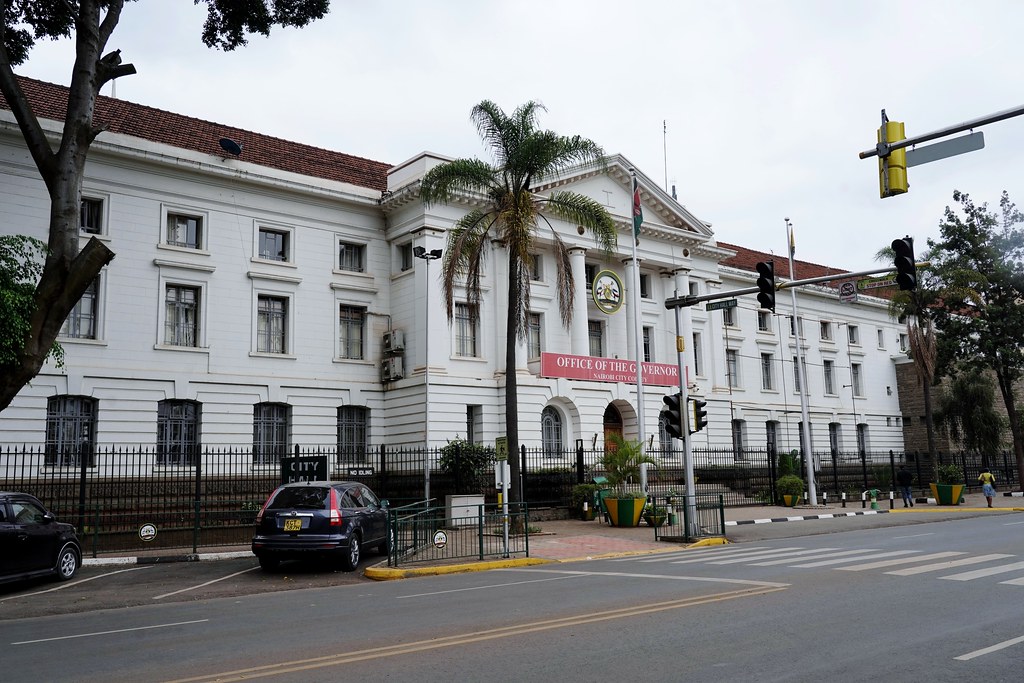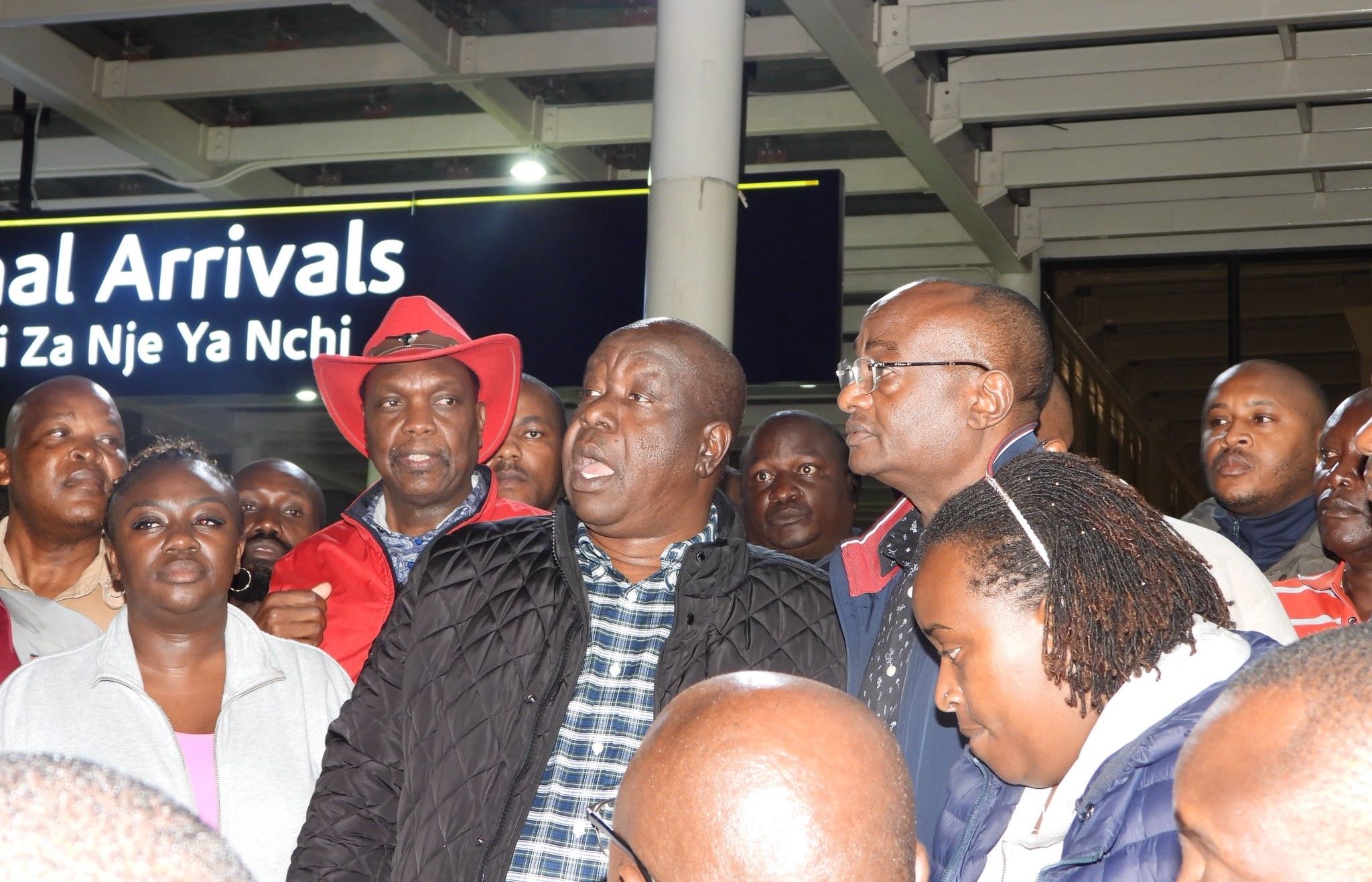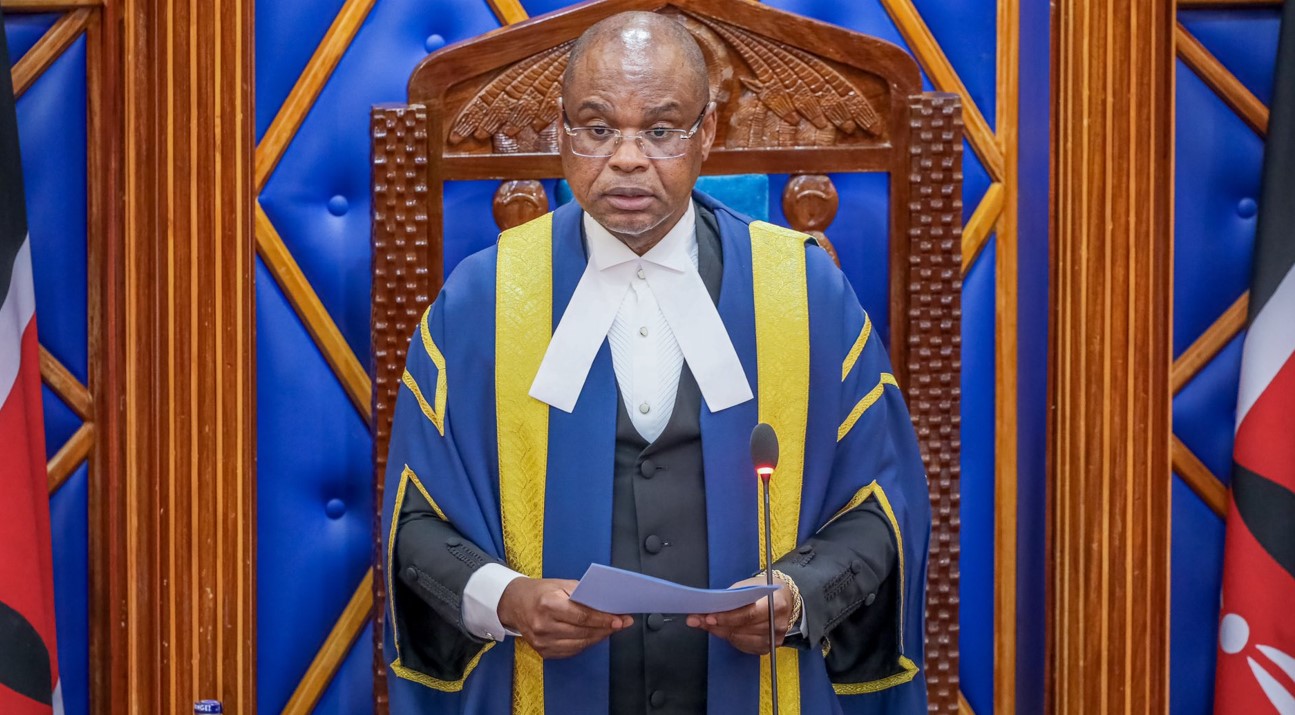NTSA cites mental health as a leading cause of road accidents

Preliminary investigations from Kenyatta University, Modern Coast, and Nithi Bridge bus accidents pointed to mental health issues.
An analysis of some of the accidents that have occurred in recent weeks has revealed a worrisome trend of drivers not recalling the moments preceding the incidents, the National Transport and Safety Authority (NTSA) has revealed.
According to the authority's programme director, Samuel Musumba, survivors have developed the tendency to attribute accidents to brake failure, masking the actual causes. It is not until they are probed further that they reveal that they get distracted by their struggles.
More To Read
- KEBS eases import rules for older left-hand, special-purpose vehicles
- Motorists Association of Kenya decries state plan to inspect private vehicles older than four years
- High Court declares Small Claims decisions rendered after 60 days as null and void
- State proposes mandatory inspections for vehicles older than four years in new rules
- State agencies directed to set up e-Agent accounts on eCitizen for bulk payments
- Five tourists killed in road accident on Ol Jororok–Nakuru road
The NTSA claims that the majority of accidents are, however, the result of underlying problems that drivers frequently fail to disclose or seek professional medical assistance for.
"This is a clear testament to underlying issues like stress. Some people don't speak up about what they are going through," Musumba said, adding that one of the key issues, mental health, is emerging as a key road safety risk factor in the country.
Preliminary investigations from Kenyatta University, Modern Coast, and Nithi Bridge bus accidents pointed to mental health issues, backing NTSA’s analysis.
After the Nithi accident that claimed four lives on Sunday, April 7, this year, the driver's phone that was recovered from the rubble showed he had been in constant calls with a contact who turned out to be his wife.
The woman revealed to the authorities that her husband complained that he was being pushed to drive the vehicle to the next town despite it having mechanical injuries.
Her confession revealed that the driver was under duress and concerned about the mechanical issues impeding his work and the safety of the passengers onboard.
In yet another incident, a motorist who was repeatedly arrested for speeding while drunk, on a popular route in Nairobi, revealed that he often got intoxicated and speeded to escape marital issues at home.
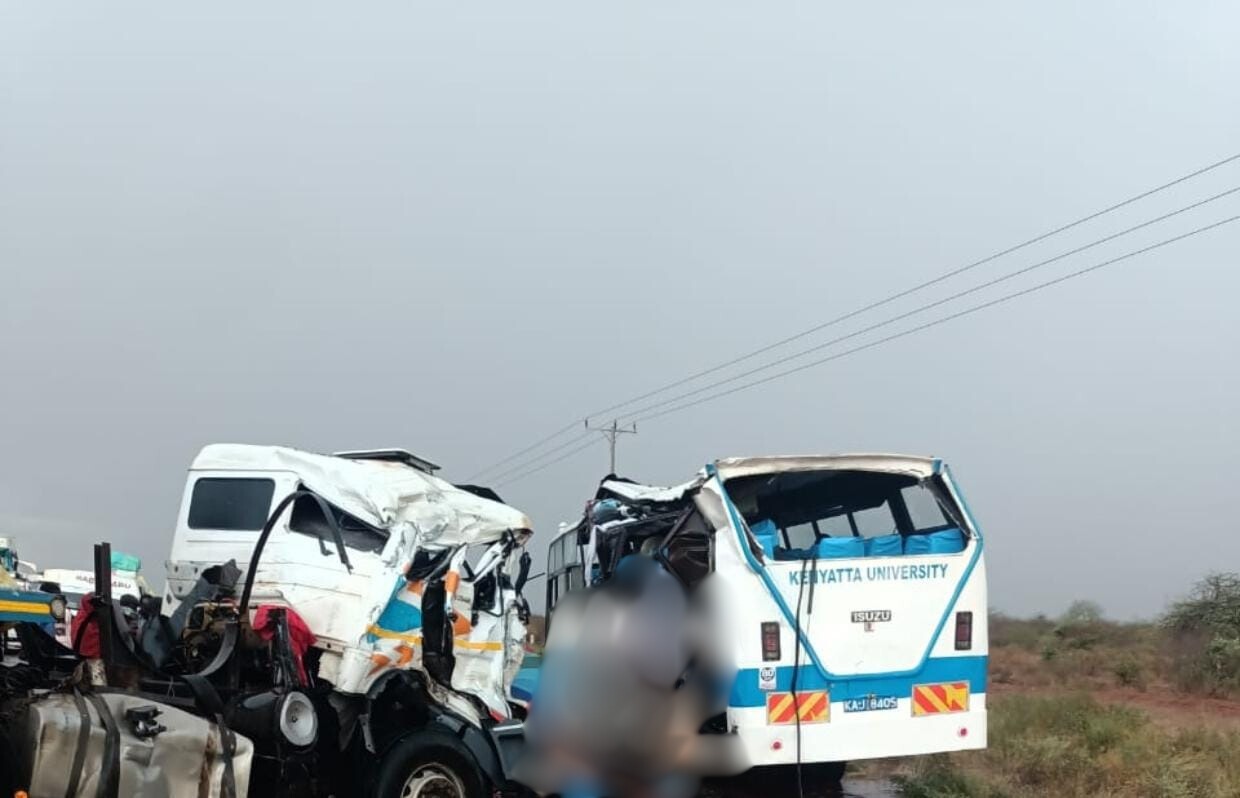 The wreckage of vehicles involved in an accident in Voi on March 18, 2024, that left at least 11 Kenyatta University students dead. (Photo: Handout)
The wreckage of vehicles involved in an accident in Voi on March 18, 2024, that left at least 11 Kenyatta University students dead. (Photo: Handout)
All these examples complement the findings of the NTSA that human behaviour is the leading cause of accidents and road crashes in the country.
"Technology will help us construct such scenes to understand driver behaviour before the accident," said Musumba during a Bloomberg Philanthropies and NTSA Road Safety journalists training in Nairobi.
Bright Oywaya, a road safety consultant with the Global Road Safety Partnership, however, noted that human behaviour doesn't happen in a vacuum.
"We need to look at human behaviour as an ecosystem through the Safe System Approach, which views road fatalities as a system failure that calls for collective responsibility," she explained.
She added that while enforcement of safety rules is important, other factors, like road infrastructure, must be in place to make motorists behave well.
"Behaviour is not by itself a determinant of safety," she added.
The two-day training is aimed at building journalists' capacity to conduct in-depth investigations into road accidents and having them venture beyond the numbers to bring out the core factors leading to rising accidents in the country.
"Behind every life lost is a family, a community. Let us profile them, tell what the family appeal is and the impact the death will have on the members," Leah Kahunde from Bloomberg Philanthropies requested.
On Wednesday, the government will unveil a national road safety action plan to help mitigate the current accident numbers.
The plan will help push NTSA’s agenda to reduce current accident numbers by half by the year 2030.
Top Stories Today

